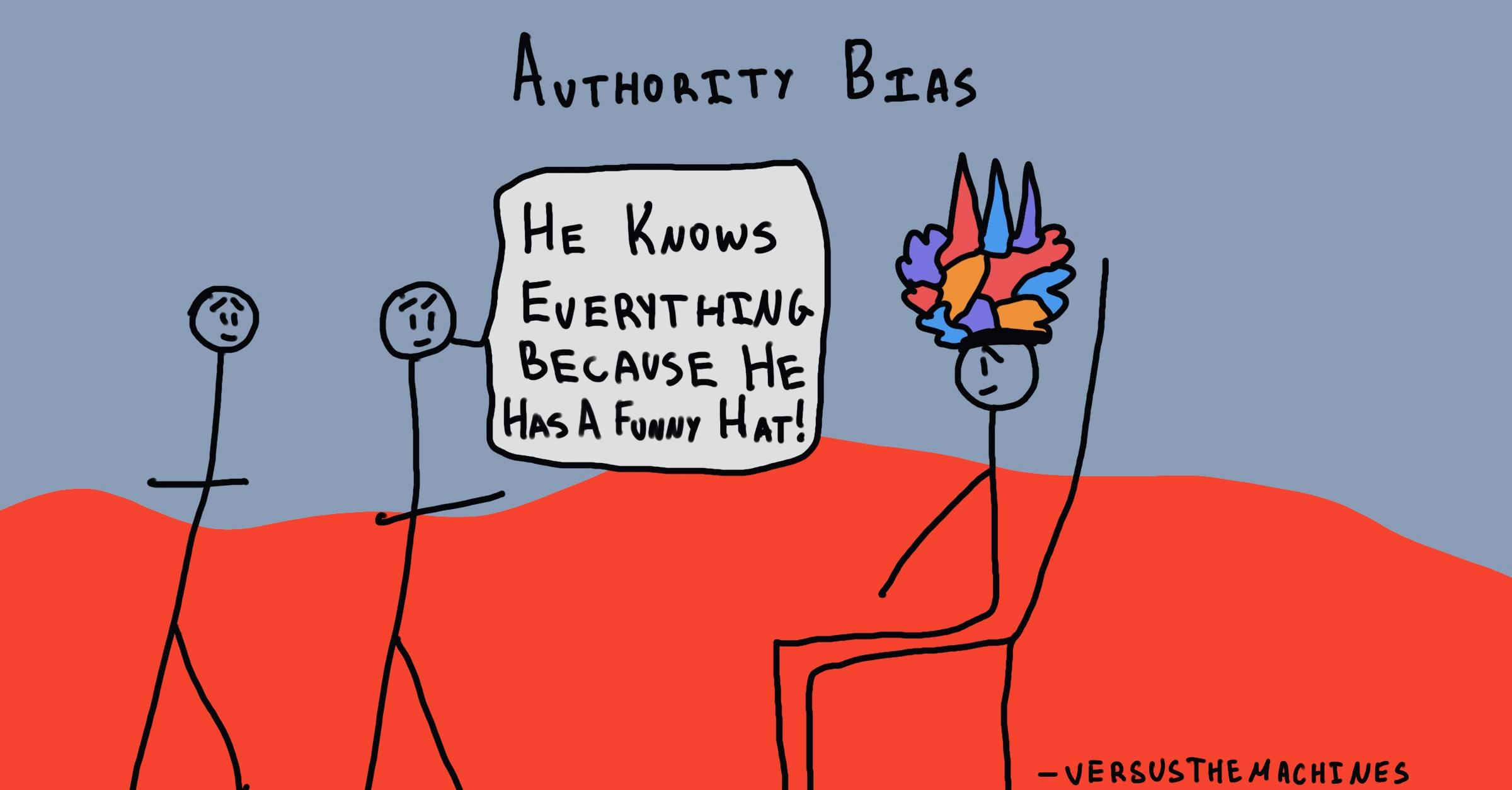Why do we always trust the doctor, even though they might be wrong?
Authority Bias
, explained.What is authority bias?
The authority bias describes our tendency to be more influenced by the opinions and judgments of authority figures. This bias can lead people to accept information or follow instructions without critically evaluating the content, simply because it comes from a perceived authority.

Where this bias occurs
Imagine Dr. Turner, a world-leading geneticist and director at a large Biotech company, is embarking on a ground-breaking research project. She is analyzing the potential applications of novel gene-editing technology, which she has specialized in for over two decades.
In a company-wide meeting, Dr. Turner passionately presents her findings, emphasizing the transformative impact the technology could have on medical treatments. Her colleagues, attuned to her reputation for innovative research, absorb her words with admiration. Dr. Turner’s authority within the organization cast a favorable light on her proposed advancements.
A few weeks later, a junior researcher, Lisa, cautiously introduces a counterpoint to Dr. Turner’s methodology, proposing an alternative approach to achieve better outcomes. Despite Lisa’s well-reasoned argument and robust evidence, there’s a subtle resistance to her suggestion among the team. Dr. Turner’s long-standing reputation and position as director eclipses the merits of Lisa’s alternative proposal.
In this scenario, authority bias influenced how the two proposals were received and evaluated by the rest of the team. In other words, when it came to evaluating the individual merits of the two scientists’ research, their level of authority and seniority within the company had more weight than the actual content of their proposals. In fact, Lisa’s alternative approach may have been seriously considered if Dr. Turner or another senior scientist at the company had presented it on her behalf or even endorsed it themselves.














